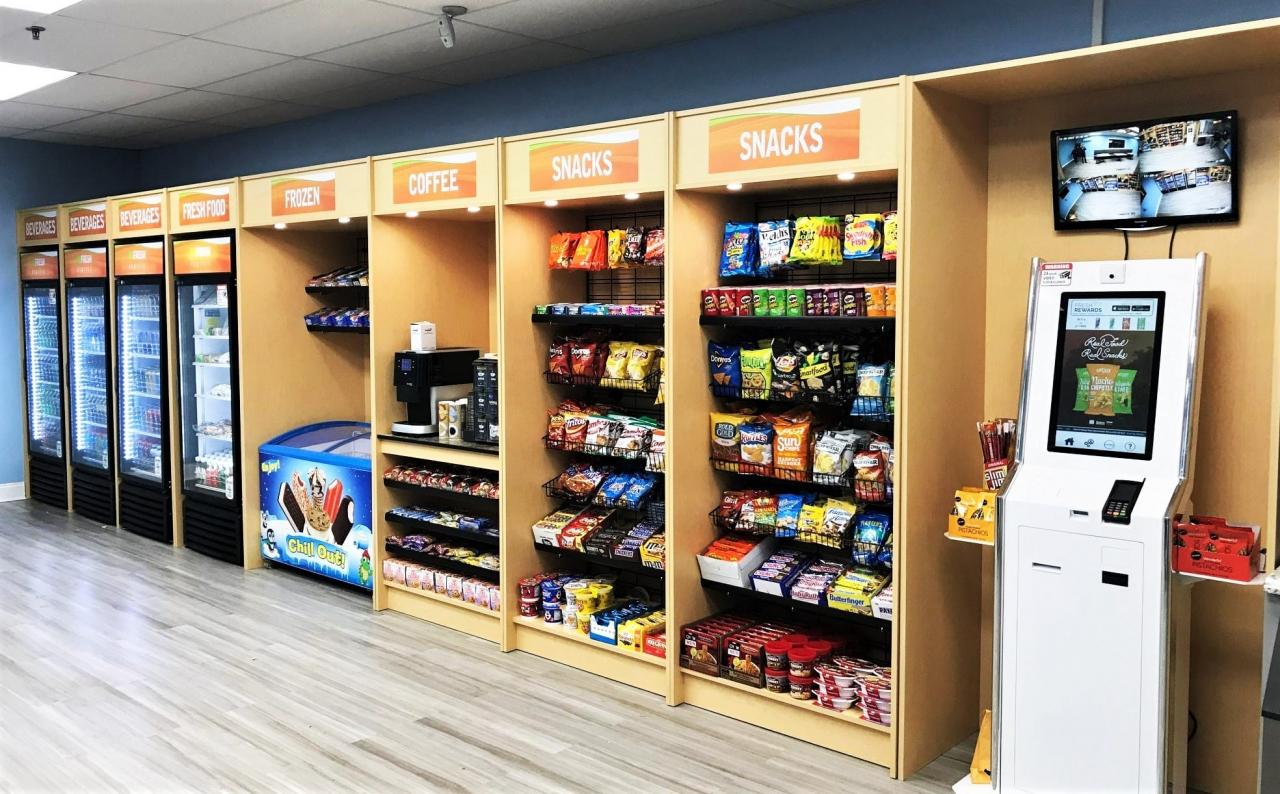Micro-Business Concepts Offer Low Financial Risk

The entrepreneurial spirit is no longer confined to the boardrooms of tech giants or the walls of venture capital firms. Today, a new and powerful form of entrepreneurship is on the rise: the micro-business. Defined as a small enterprise with typically five or fewer employees, a micro-business is the perfect vehicle for anyone with an idea, a problem-solving mindset, and a desire for financial independence. The appeal is clear: it offers the flexibility of working on your own terms, the low financial risk of starting with minimal capital, and the immense scalability of a digital-first model. In a world where the gig economy is the new normal, a micro-business is your blueprint for turning a side hustle into a sustainable, profitable, and deeply rewarding venture. This ultimate guide will take you on a deep dive into the foundational principles and the most promising concepts that are defining the micro-business revolution.
The Foundational Principles of a Successful Micro-Business

Before you can choose a specific business to launch, you must first understand the core tenets that separate a successful micro-business from a passing project. These principles are the universal truths of lean, modern entrepreneurship.
A. The Power of Niche Specialization
In a market saturated with options, the biggest mistake a micro-business can make is to be a generalist. The most effective strategy is niche specialization. Instead of selling a generic product to everyone, focus on a very specific, passionate group of people with a unique problem. For example, rather than being a general web designer, become a web designer who specializes in creating sites exclusively for independent coffee shops. This approach allows you to become the undisputed expert in your field, command a higher price, and build a fiercely loyal customer base that knows you are the perfect solution for their needs.
B. Low Startup Costs and Minimal Overhead
The beauty of a micro-business lies in its agility and lack of financial risk. The best concepts are those that can be launched with little to no upfront capital and operate with minimal overhead. This means focusing on models that don’t require physical inventory, a large staff, or a brick-and-mortar storefront. By leveraging digital tools, you can run an entire business from your laptop, minimizing financial risk and allowing you to focus on growth and profitability from day one.
C. The Importance of a Digital-First Mindset
A micro-business’s online presence is its most valuable asset. A digital-first mindset means that every aspect of your operation, from marketing and sales to customer service and delivery, is optimized for the online world. This approach allows you to reach a global audience, automate routine tasks, and collect invaluable data that can inform every business decision. It is the core of modern entrepreneurship and the key to scaling a small operation into a profitable enterprise.
D. Prioritizing Customer Service and Community
While large corporations often struggle with impersonal service, a micro-business can excel by providing a superior customer experience. The founder is often the face of the business, and this personal connection is a powerful advantage. By prioritizing excellent customer service and building a community around your brand, you transform customers into brand advocates. A loyal community provides not only repeat business but also invaluable word-of-mouth marketing that is more effective than any paid advertisement.
Micro-Business Concepts with Low Overhead
Based on these foundational principles, here is a curated list of the most promising and profitable micro-business concepts that are perfect for a new entrepreneur with a limited budget.
A. Niche Digital Marketing Consulting
The digital landscape is complex, and many small and medium-sized businesses (SMBs) are struggling to keep up. A micro-business could specialize in providing a single, high-value digital marketing service to a very specific niche. For example, you could offer SEO services exclusively for local dentists, or manage social media campaigns for organic food brands.
- Why it works: You are selling your knowledge and expertise, which have high-profit margins and require no upfront inventory. By specializing, you can become an authority in your field, allowing you to charge a premium for your services and build a reliable stream of recurring revenue.
B. Specialized AI Automation Services
AI is no longer just for big tech companies. It’s a tool that can revolutionize small business operations, but many entrepreneurs don’t know where to start. A micro-business could offer a service that helps other SMBs implement AI-driven automation tools. This could include setting up AI-powered chatbots for customer service, creating automated email marketing campaigns, or using AI to analyze customer data for personalized recommendations.
- Why it works: This is a high-demand, high-margin service that solves a critical pain point for businesses that are eager to leverage AI but don’t know where to start. You are selling efficiency and a competitive advantage, which are invaluable assets.
C. Virtual Assistance for Solopreneurs
As more people embrace the solopreneur lifestyle, the demand for virtual assistants who can handle a variety of tasks is booming. A micro-business could specialize in providing virtual assistance to a specific type of client, such as social media managers who need help with content scheduling or coaches who need help with calendar management and client communication.
- Why it works: This is a service-based business with virtually no overhead. You are selling your time and skills, and by specializing in a niche, you can build a reputation as the go-to virtual assistant for a specific type of client.
D. Curated Dropshipping for a Niche
Dropshipping has a reputation for low quality, but a micro-business can transform this model by focusing on a specific niche and curating a selection of high-quality products from reliable suppliers. The value is not in the fulfillment but in the brand, the product curation, and the marketing. For example, a micro-business could dropship sustainable products from small artisans or unique tools for a specific hobby.
- Why it works: This model eliminates the need for inventory, which dramatically reduces startup costs and financial risk. It allows you to focus on building a brand and a loyal customer base that trusts your curation and your mission.
E. Print-on-Demand E-commerce
This model allows you to sell physical products without any inventory risk. When a customer places an order for a t-shirt, a mug, or a poster with your unique design, a third-party service prints and ships it directly to the customer. This frees you from the hassle of production and logistics, allowing you to focus on design and marketing.
- Why it works: The initial investment is minimal, and the business is highly scalable. The potential for profitability is high because you can create and sell a wide variety of products to a specific niche without the financial risk of holding inventory.
F. Secondhand & Vintage Reselling
The market for secondhand goods is booming, driven by both a desire for sustainability and a demand for unique, affordable items. A micro-business could specialize in a specific type of secondhand item, such as vintage furniture, pre-owned luxury handbags, or collectible toys. The business could be run entirely online through platforms like eBay, Etsy, or a custom-built website.
- Why it works: This business model taps into the circular economy and has a low barrier to entry. The inventory can be acquired for a low cost, and the profit margins on unique, in-demand items can be very high. It’s a great way to start small and scale as your brand and inventory grow.
G. Online Course Creation for a Specific Skill
The online education market is massive and continues to grow. Instead of creating a generic course, a micro-business could specialize in teaching a very specific skill to a niche audience. For example, a course on how to use a specific software for freelance graphic designers or a masterclass on advanced watercolor painting techniques.
- Why it works: This is a highly scalable business model with a recurring revenue stream. Once the course is created, you can sell it to thousands of people with almost no additional cost. It also allows you to monetize your unique knowledge and build a reputation as an expert in your field.
H. Digital Product Development
Creating and selling digital products is one of the best ways to build a source of passive income. A micro-business could create and sell products like printable planners, social media design templates, or high-quality e-books on a specific topic.
- Why it works: This model is incredibly scalable and has very high-profit margins. Once the product is created, you can sell it an infinite number of times with no additional cost. It’s a great way to build a business that provides revenue while you are working on other ventures.
I. Hyper-Niche Coaching and Consulting
If you have expertise in a specific area—from life coaching to business consulting—you can launch a micro-business offering your knowledge as a service. Specialize in a niche to stand out. For example, a life coach for recent college graduates or a business consultant who works exclusively with small-scale coffee roasters.
- Why it works: This business has virtually no overhead. You are selling your time and knowledge, which are high-value assets. By specializing, you can charge a premium for your expertise and build a strong reputation that leads to referrals and repeat business.
J. Mobile Detailing or Cleaning Services
While many micro-business concepts are digital, there is still immense opportunity in traditional service-based businesses. A mobile detailing or cleaning service has very low startup costs and can be incredibly profitable. The key is to specialize in a niche. For example, a detailing service that focuses on luxury vehicles or a cleaning service that works exclusively with Airbnb hosts.
- Why it works: This is a classic service-based business with low overhead. By specializing, you can build a reputation for quality and command a higher price. This is a great way to start small and build a business that generates cash flow from day one.
K. Specialized Craft & Custom Goods
The market for handmade and custom goods is booming, driven by a desire for unique, personalized items. A micro-business could specialize in a specific craft, such as hand-painted sneakers, custom-designed leather goods, or personalized jewelry. The business could be run entirely from a home studio and sold through platforms like Etsy, Instagram, or a personal website.
- Why it works: This business taps into the human desire for authenticity and craftsmanship. The profit margins on a custom-made item can be very high, and the business can be started with a minimal investment in tools and materials. It’s a great way to turn a creative passion into a profitable venture.
L. Urban Farming and Local Produce
As consumers become more interested in the origin of their food, a business that provides hyper-local, high-quality specialty produce is a compelling idea. This could be a small-scale urban farm that sells directly to local restaurants or a community-supported agriculture (CSA) model where people subscribe to receive a weekly box of fresh produce.
- Why it works: This business is purpose-driven and meets a clear market demand for fresh, organic food. It also builds a strong community connection and is an excellent way to create a local, defensible brand that is insulated from the competition of large-scale agriculture.
The Path to Profitability and Scale

Having a great idea is only the first step. The true challenge lies in execution. Here is a simplified action plan to help you get started on your micro-business journey.
A. Validating Your Idea and Finding Your First Customers
Before you invest significant time or money, you must validate your idea. Talk to at least 20-30 potential customers. Ask them about their problems, what solutions they’ve tried, and what they would be willing to pay for a better one. This is a crucial step that will tell you whether or not your idea is truly viable. Your first few customers are the most important—they will provide invaluable feedback and help you refine your business model.
B. Building a Lean and Automated System
A micro-business must be a finely tuned machine. Use a lean business plan that defines your target customer, your core value proposition, your business model, and your marketing strategy. Automate as many routine tasks as possible, from email marketing to social media scheduling. This will free up your time to focus on high-value activities like strategy, customer service, and growth.
C. The Role of Content Marketing and SEO
For a micro-business, content marketing and SEO are your most powerful tools for customer acquisition. Create valuable content—blog posts, videos, or podcasts—that solves your audience’s problems. By focusing on niche keywords, you can easily rank on search engines and attract highly targeted traffic that is more likely to convert into customers. This is a low-cost, high-return strategy that builds trust and positions you as an expert in your field.
D. Scaling from a Side Hustle to a Full-Time Business
The beauty of a micro-business is that it can start as a side hustle. Once you have a proven concept and a reliable stream of recurring revenue, you can begin to scale. This could mean outsourcing routine tasks, hiring your first employee, or investing in new technology to automate more of your operations. The goal is to build a business that is not just a side hustle but a sustainable, profitable, and enduring enterprise.
Conclusion
The pursuit of a successful micro-business is a journey of purpose, resilience, and strategic execution. The old rules of entrepreneurship, once a barrier for those without significant capital or connections, have been replaced by a blueprint that is accessible to anyone with a unique idea, a powerful work ethic, and a willingness to learn. The most successful ventures of the modern era are not just businesses; they are solutions to real-world problems, built on a foundation of technology, a deep understanding of human needs, and a genuine commitment to a purpose that is larger than profit.
The micro-business model is a perfect entry point into entrepreneurship. It provides a low-risk environment to test an idea, a fast track to profitability, and the flexibility to work on your own terms. The businesses that will define our future are those that are not afraid to be small, to be specialized, and to be driven by a purpose that resonates with a community. This is not about building a billion-dollar empire; it’s about building a profitable, sustainable venture that provides for you and your family while making a positive impact on the world. This journey is challenging, but the rewards—financial independence, personal growth, and the satisfaction of building something meaningful—are immense.

